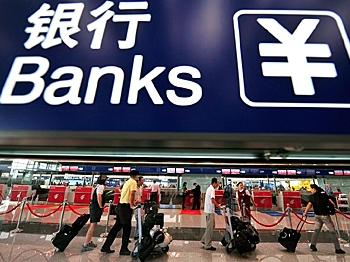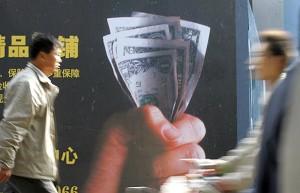Recently, in order to resolve the problem of insufficient credit for Chinese enterprises, the national office of Rectification and Standardization of Market Economies worked with the People’s Bank of China, National Development and Reform Commission, and Legislative Affairs Office of the State Council to draft a proposed model for a social credit system. It was reported that the proposal was submitted to the General Office of the State Council, which is now seeking comments from the public about the proposal.
It is a common problem in China that enterprises don’t have good credit ratings. Unpaid debts among enterprises are one of the leading causes of this situation. Often, retailers use wholesalers’ funds to run their companies. Wholesalers are using manufacturers’ funds, and manufacturers are using the raw material providers’ funds. Thus, a bad debt network has been created. In the 1990s, the Chinese central government set up a special team, headed by the Premier, to resolve the triangular bad debt relationships that exist among enterprises. However, the issues were never resolved while new issues kept developing. According to a survey published by the Chinese media, seventy one percent of Chinese enterprises were deeply entrenched in the bad debt network, and the average delay in payments was more than 120 days.
Another problem caused by lack of credit for businesses is the high bad-debt rate absorbed by Chinese banks. A lot of enterprises do not pay off loans borrowed from banks. Some were not able to pay, some just refused to pay the loans even when they had the funds, and some never intended to pay off the loans from the very beginning. Banks are the connection between funds in society and businesses that need financing. The high rate of uncollected debts born by the banks is an important indicator of the looming credit crisis throughout society.
Of course, there are many other credit issues among Chinese enterprises. The company managers are cheating investors, the major investors are cheating the minor investors, bosses cheat their employees, and enterprises cheat the consumers. The whole Chinese business world has been turned into a cheating battlefield. No wonder there is an old saying that “all businessmen are crooked”.
Not being able to get credit is a symptom of a business that is about to die out. The lack of credit available to Chinese enterprises indicates that the Chinese economy is not truly modernized yet. In this global economy, it is hard for Chinese enterprises to be competitive without good credit.
It is not hard to understand why creditability means competitiveness. In the age of credit when most enterprises honor their debts, the cost of gaining trust from each other is low. Otherwise the cost for credit information would grow in multiples if there was no trust between enterprises. In the meantime, the cost of unknown risk is also higher when there is no trust, which would make the enterprise lose its competitive advantage. Being unable to get credit would also increase the cost of financing, and loss of opportunities to grow.
Why are Chinese enterprises lacking credit? This is related to the overall social environment of China. The first reason is the legal system. In China there is no strict legal enforcement when businesses renege on their loans, and thus the consequences of cheating are few. It is ironic that the Chinese enterprises that have often cheated in China rarely delay payments to customers outside of China; this is mainly because of the competent legal systems in those outside countries.
Another cause of this problem is the economic system in China. For instance, state-owned enterprises do not have to pay off the monies owed to state-owned banks because they are all state-owned. In addition, frequent government meddling results in the belief that it is much easier to bribe officials than to work on efficiency and credit. The bribed officials help enterprises to secure contracts or cancel bad debts. Lack of access to information also makes it impossible for consumers to obtain true information about enterprises, which also encourages the cheating to a degree.
Building a social credit system is a complicated project that would require changes in all of society, the political system, the judicial system, and the overall economy. A complete legal system and open information are required to develop a social credit system. In addition, this requires improvements in society’s moral level and the political system.
Credit is based on honesty. If the whole society is full of con men, how can we expect the companies to honor their debts? In today’s China, the government, legislative branches, and law enforcement organizations are run on deception and corruption. How could regulations or laws manage to build a modernized economic credit system in such a climate?



